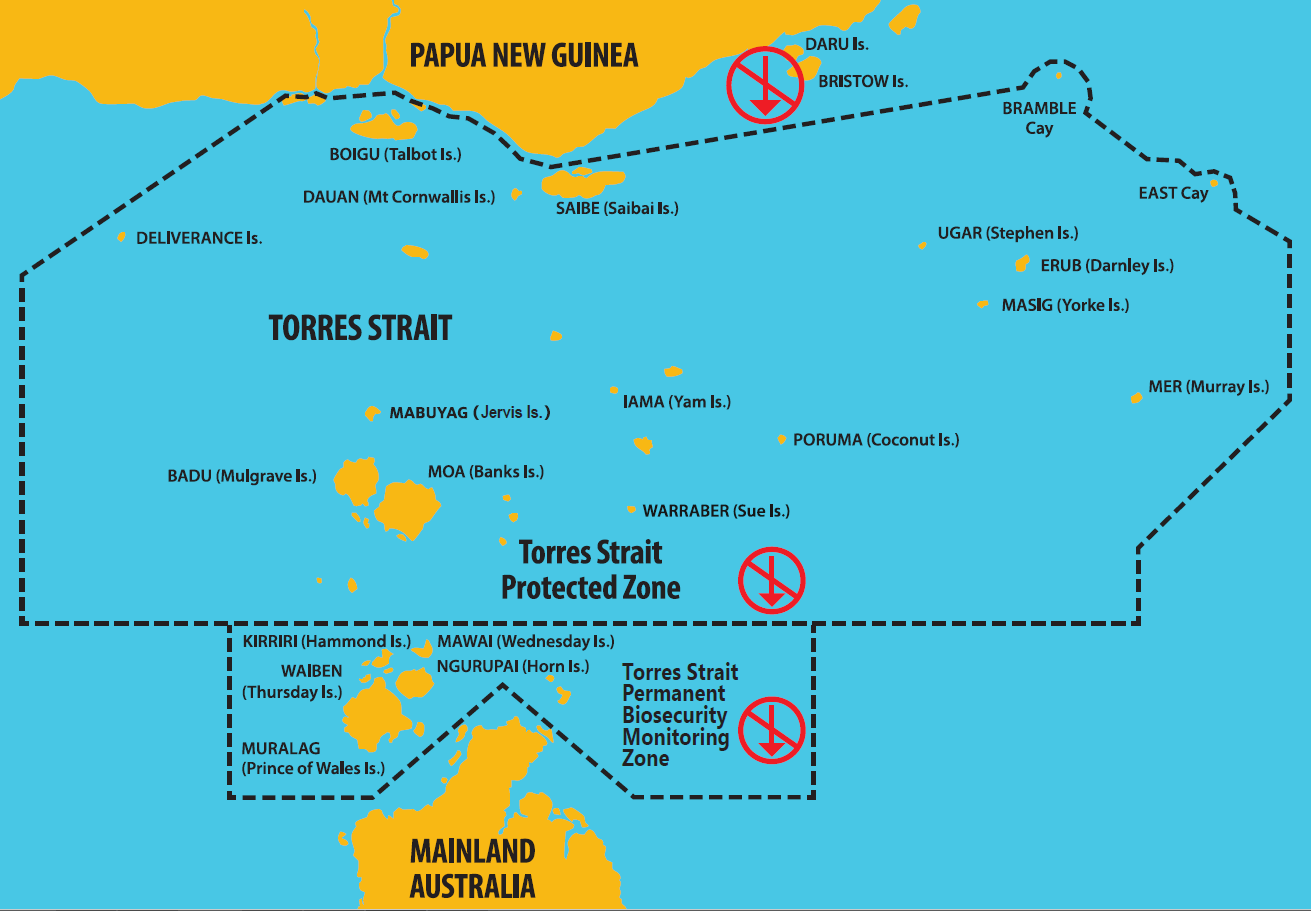The Department of Agriculture, Fisheries and Forestry regulates the movement of all vessels, goods and passengers from the Torres Strait under the Biosecurity Act 2015.
This includes the monitoring of vessels arriving on mainland Australia from designated biosecurity zones in the Torres Strait, to assess any biosecurity risks posed by the vessels, or goods and passengers.
Pre-arrival reporting
If you have operated a vessel seven metres or longer, in either the Torres Strait Protected Zone or the Torres Strait Permanent Biosecurity Monitoring Zone, you must report to the department.
This report must be submitted no more than 96 hours and no less than 12 hours prior to arriving at your first mainland destination. For further information please call the Waiben Biosecurity Office on 07 4212 0185.

After reporting to the department you will be issued with a notification number. Please record this number in your log book for auditing purposes.
Vessels transiting directly through the shipping channels and not stopping in the Torres Strait are exempt from the reporting requirements.
How to report
Lodge your report online using the Pre-arrival reporting form.
If you are unable to access the online form, please call the Waiben Biosecurity Office on 07 4212 0185 or you can submit your report using the Pre-Arrival Report for Torres Strait Vessels 7 metres or longer.
Assessment of your goods and vessel
A biosecurity officer will assess your vessel and the goods you are carrying. You may require a vessel inspection in port.
Goods that require an import permit or need to meet import conditions (such as a treatment) must not be removed from your vessel, unless they are accompanied by a permit or another authority document issued by the department. This also applies to waste.
For further information please see Moving goods from the Torres Strait.
There are no fees or charges for this specific inspection service in relation to the Torres Strait.
Keep a Top Watch! for swarming insects, such as bees or mosquitoes, and ensure your vessel is not harbouring exotic insects or providing breeding sites. Report live insect swarms to the department by calling 1800 900 090.
